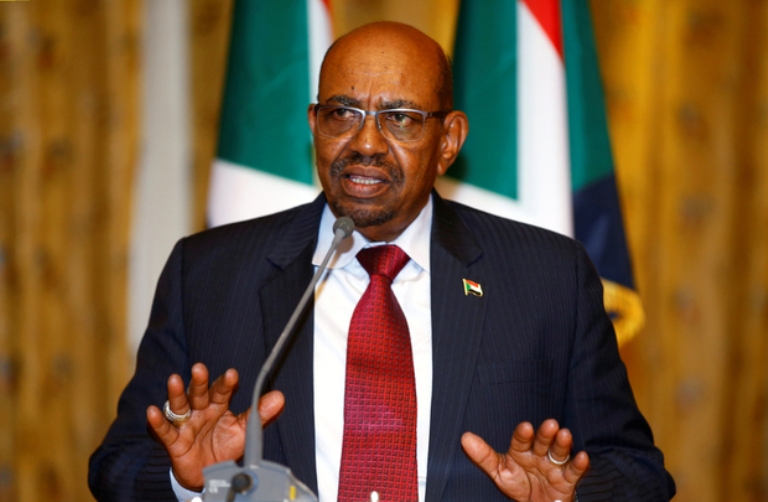Sudan’s al-Bashir calls on opposition to get ready for 2020 elections

As a result of difficult living conditions in the country and the endemic economic crisis, Sudanese took to the street across the country calling on al-Bashir to step down pointing that his isolated regime was the source of the country’s problems.
The opposition groups have called for a protest on Sunday to demand him to go.
“We have a popular mandate and came to power through elections supervised by a commission recognized by all political forces,” Bashir said in an interview with London-based Al-Mustakillah TV.
Al-Bashir who had clearly indicated he would not resign pointed that Sudanese protested last December for “objective demands” referring to the increase in bread price and shortage in cash but added that the street did not follow the opposition when it comes to political demands.
The embattled president further reiterated his pledge to strive to provide decent living conditions and security to the Sudanese people.
“In the context of international and regional turmoil and targeting (of the regime), we seek to secure the lives of the Sudanese people and provide security,” he said.
When al-Bashir took the power through a coup d’etat in June 1989, the international community stopped economic assistance and development programmes and called to re-establish the democratic regime.
Also, the country suffered economic embargo and sanctions for support to terrorist groups, besides different armed conflicts staged by his regime in southern, eastern and western parts of the country draining its resources. However, Washington left the economic sanctions in October 2017 citing Sudan’s cooperation in the fight against terrorism.
When asked about a call by 22 political forces that participated in the national dialogue to step down and to transfer power to a transitional collegial body, the Sudanese president minimized the move saying it was initiated by some “political leaders because they have been dismissed in a recent ministerial reshuffle”.
Further, al-Bashir seemed in denial of the ongoing repression and lack of freedoms in the country when he refuted accusations of dictatorship and totalitarian policies implemented by his government.
“If I was a dictator and arrogant, I would not have enjoyed the kind of popular reception that I received in Al-Jazira State two weeks ago,” he said in response to those who accuse him of dictatorship.
“The Sudanese people do not know hypocrisy. I do not say that all the people stand with me but there is a minority that is not (supporting me),” he added.
Also, he stated the economic situation in Sudan is better than neighbouring countries despite the nationwide popular protests.
Sudanese security forces killed 19 protesters according to the government spokesperson but the opposition says the death toll reached 40 people while Amnesty International put their number at 37 protesters throughout the country.
Speaking about accusations of corruption in the country, al-Bashir also defended his government saying it works to fight corruption without exception for any of those who are charged of stealing the money of the Sudanese people.
He pointed that he didn’t intervene to protect one of his ministers without naming him and a businessman close to him called Fadl Mohamed Khair adding have been cleared of the charges by the court.
In a related development, Khartoum State on Saturday announced the partial resumption of final classes at basic and high schools on Tuesday 8 January while the other classes will resume on 13 January.
The resumption of classes is part of a series of measures, the Sudanese authorities decided to implement to minimize the nationwide protests.
The government has accused the protesters of sabotage and vandalism. It also, says the protesters are infiltrated by supporters of rebel groups who want to bring chaos and destabilize the country.
(ST)
